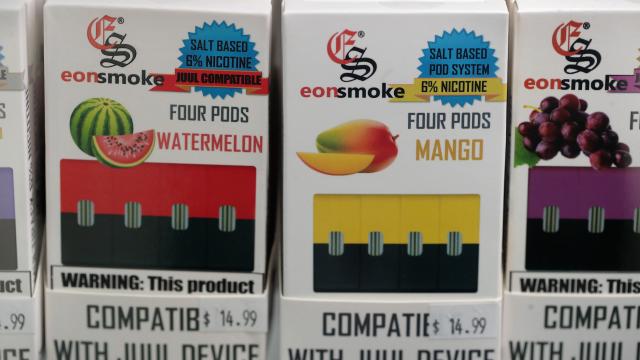North Carolina is aggressively going after the vaping industry for what the state sees as its role in getting kids hooked on nicotine. On Wednesday, State Attorney General Josh Stein announced that his office would be filing lawsuits against eight e-cigarette companies, arguing that each purposefully targeted underage customers. The lawsuits follow a similar one filed by Stein’s office against the vaping giant Juul in May.
“At the same time as our kids are headed off to school, we are hearing new stories about the health risks associated with e-cigarettes on a daily basis,” said Stein in a press conference on Tuesday. “Our complaints allege that these eight e-cig companies are helping to fuel an epidemic of vaping among high school and middle school students.”
According to Stein, the eight named companies — Beard Vape, Direct eLiquid, Electric Lotus, Electric Tobacconist, Eonsmoke, Juice Man, Tinted Brew, and VapeCo — all ran afoul of the state’s Unfair or Deceptive Trade Practices Act.
They’re alleged to have used colourful labelling and sweet flavours in their products to knowingly entice kids into buying them. They’re also accused of failing to take even meager steps to prevent children from getting their hands on these products, such as instituting age verification checks on their websites.
“One look at their marketing materials demonstrates just how egregious their sales tactics are — with flavours like cotton candy, gummy bear, unicorn, and graham cracker, they’re clearly targeting young people,” Stein said. “To teenagers, the health and addiction risks of vaping are simply too high. That is why my office is asking the court to protect our kids by shutting down these operations in our state.”
It’s estimated that as many as 3 million teens and school-age children in the U.S. used e-cigarette products in 2018, though it’s unclear how many were regular users.
Regardless, the number represents a substantial jump from previous years. And it’s prompted the Food and Drug Administration and U.S. Congress to go after Juul and other companies for their marketing practices.
Juul has defended itself by citing efforts to educate teens about not using its products and removing certain flavours from stores. But these efforts have run into their own stumbles. And as this recent lawsuit illustrates, the problem goes far beyond Juul and its trendy pods.
A whole swathe of copycat companies, complete with their own pods, have emerged following Juul’s attempts at self-regulation.
Meanwhile, health officials in multiple U.S. states are investigating separate clusters of severe lung illness and seizure that have been linked to vaping.
